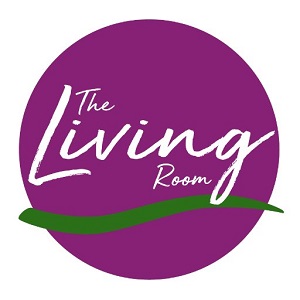Drug & Alcohol Rehab in Hemel Hempstead

How Does Rehab Work?
Rehab involves the support services and therapies that people with drug or alcohol addiction receive to beat addiction and subsequent relapse. Once a medical assessment and detox are completed, individuals will receive addiction treatment in the form of therapy. Treatment is made up of therapy from a qualified counsellor, the attendance of group meetings as with a 12 Step programme, and the option of inpatient or outpatient rehabilitation. Inpatient rehab services require that clients live at the residence or centre for the duration of therapy. Outpatients will attend therapy by counselling or meetings but will not stay at the facility. Consultation with a medical specialist plus an individual assessment can help evaluate if inpatient or outpatient services are suited to your needs.
What Happens During Residential Rehab?
When you are ready to enter rehab for drug and/or alcohol addiction, it is a brave step towards recovery. Although achieving balance and breaking the cycle of dependence takes some time, it can be achieved. To help you make an informed decision regarding treatment, we look at the options available and what happens during rehab.
Rehab occurs in stages. It starts with a medical assessment. Individuals must be professionally assessed to help staff understand the nature of your addiction, its history and comorbid disorders (such as bipolar or schizophrenia). The information obtained from the assessment is used to create a unique therapy programme for you. Because every person is different, a personalised treatment plan will help provide a more tailored programme that meets your needs and requirements.
The next part of treatment is detoxification. Detox assists with the removal of toxic substances from the body. It may be vital that it is medically supervised to manage withdrawal symptoms. This is especially true for benzodiazepine and alcohol dependency. The final phase of the programme is the treatment itself (therapy). Individuals can then decide upon inpatient or outpatient treatment.
Therapy is an important part of rehab and every aspect of addiction treatment must be tailored to address individual backgrounds, substance dependencies, and circumstances. Interventions can range from private counselling and cognitive behavioural therapy to developing coping mechanisms, skills, and attending group meetings.
1. Assessment

Before treatment can be delivered, a health assessment is provided. This involves an in-depth look at individual medical history, drug use, and the presence of mental health issues. Clients can be accommodated with an assessment by phone. An admissions team will be responsible for the telephone assessment to determine the best form of treatment. Along with determining a treatment plan, the admissions team or medical professional will have accurate information to facilitate the detox process.
Should you or someone you love require help to overcome addiction, it starts with an individual assessment. The purpose is to determine the right therapeutic approach for the management of addictions and possible comorbidities.
2. Detox

Detox involves the cessation of drugs and alcohol from the body. With professional help, it is safely facilitated and is most commonly monitored in a residential rehab because of the dangers associated with withdrawal.
It is recommended to have a managed medical detox because experienced staff are readily available to help you through withdrawal. As the substance is no longer consumed, you may start to experience withdrawal symptoms. Without professional help, there is a higher risk of relapsing. Detox is followed with a fully tailored therapeutic programme. You can attend inpatient or outpatient therapy that is managed by trained addiction counsellors and a support team.
3. Therapy

Therapy begins when the body is rid of drugs and/or alcohol. The choice of being assigned to an inpatient or an outpatient service will depend on the individual assessment, budget, and life commitments. Therapy provided in treatment ranges from individual counselling with a therapist, the attendance of group therapy, and emphasis on developing positive coping mechanisms as well as skills.
Step by Step Process for Residential Rehab
To understand your medical and mental health history.
Arrange a suitable date to begin your journey to recovery.
Begin the managed withdrawal process from substances including alcohol.
To understand the root cause of addiction and how to overcome it.
Aftercare is provided to help manage the risk of relapse.
To help heal the wounds that addictive behaviour has caused others.
Find your Nearest Rehab Centre in Hemel Hempstead
The nearest rehab centre is Spectrum Drug and Alcohol Recovery Service.
Address: Spectrum Drug and Alcohol Recovery Service – Hertford, 1 Yeomans Ct, Ware Rd, Hertford SG13 7HJ, United Kingdom
Call 0333 4444 432 to discuss your alcohol or drug rehab requirements and any other questions you may have about the process of residential rehab.
Outpatient Addiction Services in Hemel Hempstead
To make an informed decision on which type of treatment will guide you in your journey to overcoming dependence, it is important to look at the differences between outpatient and residential rehabilitation. Outpatient care can be very useful as it offers a flexible and cost-effective alternative to inpatient treatment.
During an outpatient programme, you do not have to stay at a clinic to receive treatment. It is a more flexible programme for those who need support and therapy but cannot fully commit to a 24-hour residential programme. The purpose of outpatient programmes is to help you benefit from counselling while attending to family, work, and personal commitments.
PrivateOutpatient care involves individual counselling with a therapist. You are required to travel to the therapist which involves hour-long treatment sessions. Aside from private therapy, there are also free services from charities and government-driven organisations to address drug and alcohol addictions.
The Benefits of Outpatient Services
Private Outpatient practices focus on individual support that is tailored to suit the needs of every patient. – Outpatient treatment is a more flexible arrangement that will aid many struggling with addiction, regardless of financial or personal commitments. It includes the attendance of weekly sessions with a qualified therapist. – It is a more cost-effective treatment programme compared to inpatient services.
The Challenges of Outpatient Services
Because one remains in the same environment and vulnerable to the same triggers, there may be a higher risk of relapse and failure to complete the outpatient programme. Although the NHS and other UK-based charities provide free addiction services, treatment is not tailored to the individual’s needs and waiting lists are to be expected.

How Much Does Rehab Services Cost in Hemel Hempstead?
You can expect to pay between £1500 – £4000 per week for residential rehab. If you cannot afford a private addiction plan, you can rely on free and more affordable recovery options to address your addiction issues. There are a number of organisations that assist those struggling with free and affordable services throughout the UK.
The NHS and charities such as Turning Point will need a self-referral to be considered for therapy. You will also find many other affordable services (such as private counselling) or free therapies and community-supported programmes for those with drug or alcohol addiction. These groups include AA or Alcoholics Anonymous, Narcotics Anonymous, and Cocaine Anonymous.
Support Groups near Hemel Hempstead

Hemel Hempstead Lunchtime Living Sober
St Paul's CE Church, 1 Solway, Highfield HP2 5QN

Hemel Hempstead Lunchtime Big Book
Chaulden Community Centre, 38 Long Chaulden HP1 2HX

St Albans Lunch Bunch Hybrid
Dagnell Street Baptist Church, 1 Cross St AL3 5EE
The Pros and Cons of Seeking Treatment in Your Local Area
Pros
1. You are familiar with the area which may provide a layer of comfort/safety.
2. Family or friends can easily travel to visit or are close by.
3. You could save on the costs of travelling long distances for treatment, or free addiction services may only be offered in your hometown.
Cons
1. A local environment means access to drug dealers or other triggers. This is more of an issue if you choose outpatient programmes.
2. Not considering locations outside your area could result in missed opportunity for more valuable and rewarding programmes.
3. Addiction treatment services that are close by don’t always offer the best standard of treatment.
The CQC website will provide information and ratings on a service in the event you are unsure regarding a particular service.


